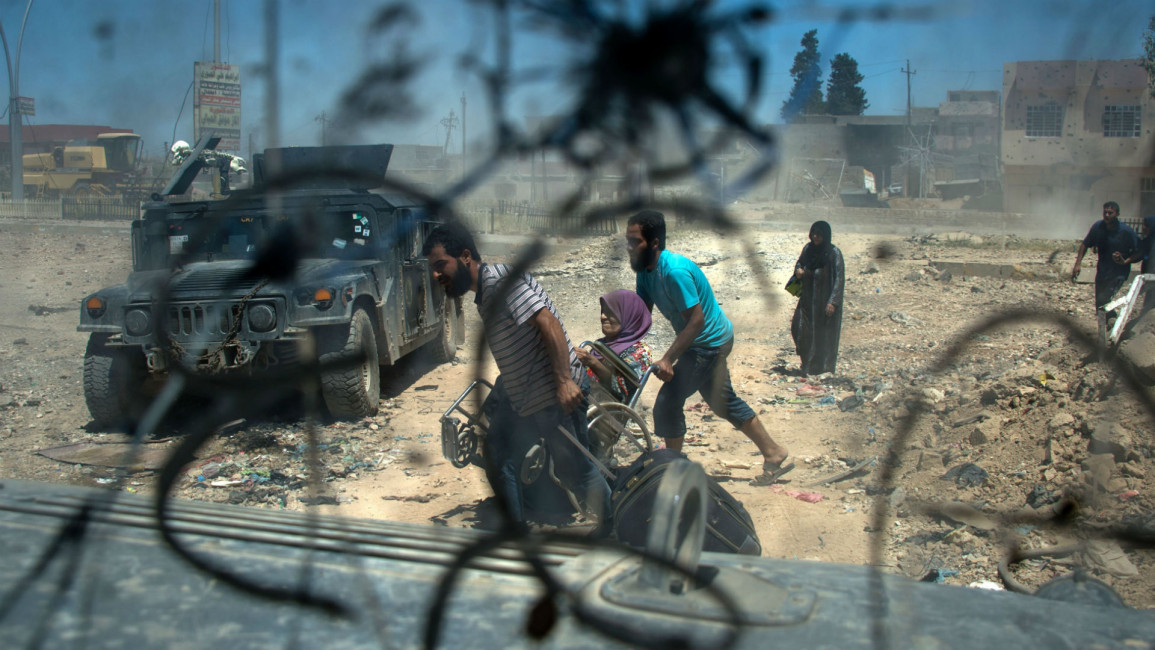Mosul families forced back to Mosul by Iraqi army
The Iraqi army has forced over 300 families displaced by fighting in Mosul to return to western areas of the city, Human Rights Watch has reported, leaving them vulnerable to attacks by the Islamic State group which operate in the area.
The families had fled fighting in Mosul as Iraqi forces close in on IS last strongholds in the Old City, with the group appearing to be on the brink of defeat.
Most had fled to the Hammam al-Ali and Hajj Ali camps for displaced civilians 70 kilometres south of the city, but were forcibly returned to west Mosul due to a lack of space at the facilities.
"People from western Mosul fled some of the worst fighting there and finally found safety, only to be forced back to areas still under IS fire," Lama Fakih, HRW's deputy Middle East director, said in the report.
"These families should not be forcibly returned to unsafe areas and areas that lack adequate water, food, electricity, or health facilities."
Some families were given two hours' notice to leave the camps, while others were ordered to leave immediately without being able to gather their belongings, HRW reported.
"The families were not ready, and most did not want to go,” staff members told HRW. "In the end, it was totally indiscriminate who got to stay because we had not made it to their tent in time, and who was forced to leave."
The 300 families were taken in 30 Iraqi army trucks to the Baghdad Circle, a southern entry point into Mosul just two kilometres from the front lines, and then left there to find their way home.
One person who was forced to return to his home in Mosul's Wadi Hajjar district said that an IS mortar had blasted through his roof. Neighbours told him it had happened 10 days prior to his return.
Another man from the Wadi Hajjar neighbourhood who spent six weeks in the Hajj Ali camp said that on 10 May a local sheikh accompanied by several guards told residents from 'liberated' neighbourhoods to return.
The families that were forced to return to Wadi Hajjar and Mansour told HRW that they had limited electricity and water, and could not afford to feed their families as prices in local markets sky-rocketed.
According to UN data, as of 16 May there were at least 7,000 plots in camps available for new arrivals and aid workers told HRW that local organisations have identified multiple site for new camps.
More than 400,000 Iraqis have fled fighting in western Mosul since February, as the Iraqi army continues its campaign to wrest back control of the city from the Islamic State group
"The armed forces have an obligation to protect civilians, but they are instead putting civilians in danger by sending them back into unsafe areas," HRW's Fakih said.
"All returns should be safe, dignified, voluntary, and informed."



![Widespread famine is imminent in Gaza [Getty Images]](/sites/default/files/styles/image_212x120/public/2024-03/GettyImages-2015647000.jpg?h=199d8c1f&itok=VUMjNSXn)